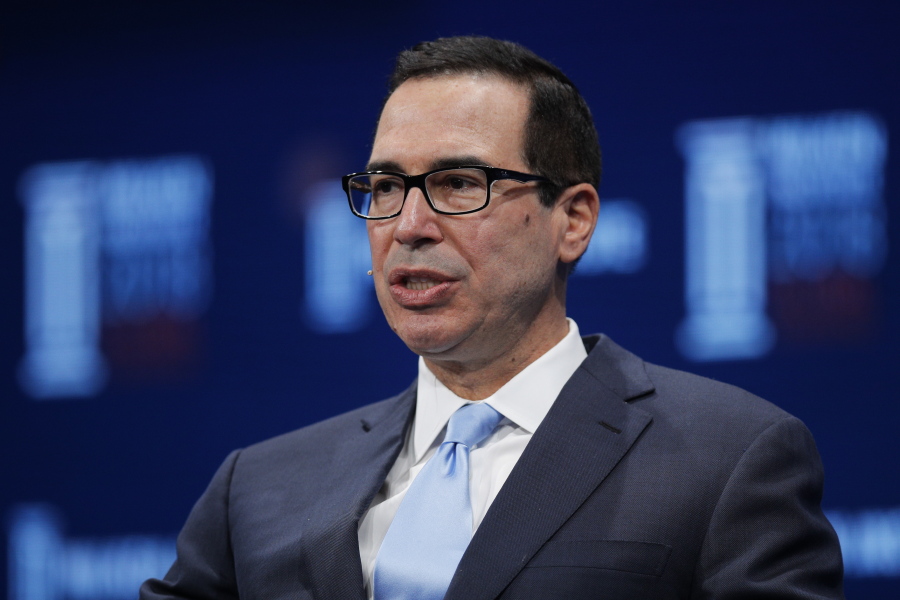WASHINGTON — President Donald Trump on Monday hailed his administration’s temporary truce with China on trade, even as his Treasury secretary and China struck a note of caution on the latest agreement.
After high-level talks in Washington last week, Beijing has agreed to “substantially reduce” America’s trade deficit with China.
“On China, Barriers and Tariffs to come down for first time,” Trump tweeted.
Farmers, he promises, will come out on top.
“Under our potential deal with China, they will purchase from our Great American Farmers practically as much as our Farmers can produce,” he tweeted.
Both sides, however, have said there are no guarantees trade tensions are over. China hasn’t said how much it’s willing to reduce the U.S. trade gap. The Trump administration had sought to slash the deficit by $200 billion.
Also left unclear is the issue of intellectual property. The U.S. has long accused Beijing of secretly stealing U.S. technology from American businesses. Treasury Security Steven Mnuchin said Monday those issues “are part of our framework. These things cannot be fixed overnight.”
Commerce Secretary Wilbur Ross, who has been part of the U.S. negotiating team, is expected to go to China soon to follow up on last week’s discussions.
A day after declaring the trade war “on hold,” Mnuchin told CNBC Monday that Trump is reserving the right to reimpose tariffs against Chinese goods if the two countries can’t agree on specifics to bring down the massive trade deficit with Beijing.
Details to be worked out
Likewise, China’s foreign ministry said details still have to be worked out.
“Given the increasing interaction between the two countries, we cannot assure you they will not encounter more frictions or disputes in the future,” said spokesman Lu Kang.
Last year, the U.S. had a record $376 billion deficit with China in the trade of goods; that was the largest by far with any nation.
Mnuchin has said to expect to see a big increase — 35 percent to 45 percent this year alone — in U.S. farm sales to China. Mnuchin also forecast a doubling in sales of U.S. energy products to the Chinese market, increasing energy exports by $50 billion to $60 billion in the next three years to five years.
Farm sales could be key politically, as many Trump supporters in rural states say they feared a U.S. trade war with China would hurt their export business.
Trade analysts were not surprised that China refused to agree to a numerical target for cutting the trade gap, but they said the talks probably were more successful in easing trade tensions.
“The Trump administration seems eager to engineer at minimum a temporary peace with China to ensure a smooth run-up to the Kim-Trump summit in June,” Cornell University economist Eswar Prasad said, referring to the June 12 meeting scheduled between President Donald Trump and North Korean leader Kim Jong Un.
If there is success in the U.S.-China discussions, analysts suggest it likely would involve the countries’ presidents this fall before the November elections.



